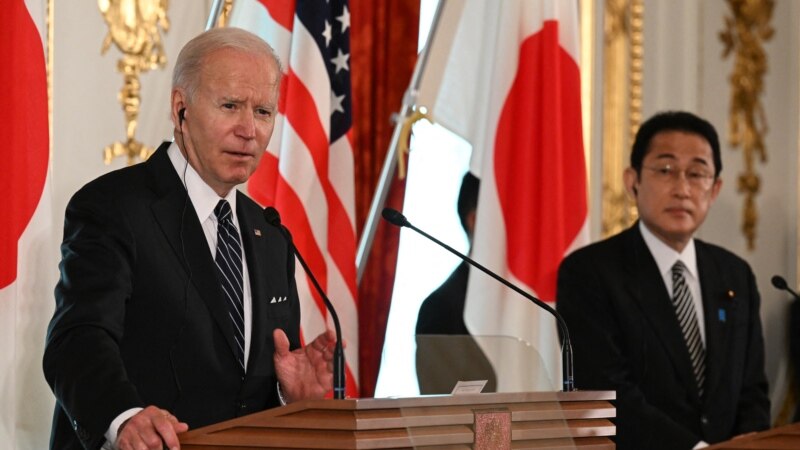U.S. President Joe Biden will hold talks with Japanese Prime Minister Fumio Kishida at the White House on January 13 to discuss North Korea, Ukraine, China’s tensions with Taiwan and a “free and open Indo-Pacific,” the White House said Tuesday.
The two leaders will discuss “a range of regional and global issues including the Democratic People’s Republic of Korea’s unlawful weapons of mass destruction and ballistic missile programs, Russia’s brutal war against Ukraine, and maintaining peace and stability across the Taiwan Strait,” the White House said.
The meeting between Washington and its key Asian partner in standing up to China’s increasing might comes as North Korea’s missile tests and calls for a larger nuclear arsenal worry U.S. allies in the region.
Kishida plans to discuss Tokyo’s new security policy, which saw the unveiling in December of Japan’s biggest military buildup since World War II, Japan’s Yomiuri daily newspaper reported last week, citing multiple unidentified Japanese government sources.
The White House said Biden will reiterate his full support for Japan’s recently released National Security Strategy.
“The leaders will celebrate the unprecedented strength of the U.S.-Japan Alliance and will set the course for their partnership in the year ahead,” said the statement from White House press secretary Karine Jean-Pierre.
On a visit to Japan in May, Biden applauded Kishida’s determination to strengthen Japanese defense capabilities.
Japan’s $320 billion defense plan includes the purchase of missiles capable of striking China and readying the country for sustained conflict, amid concerns that Russia’s Ukraine invasion could embolden China to move against self-ruled Taiwan, a neighbor of Japan.
Japan hosts the Group of 7 nations this year, including a leaders’ summit in May in Hiroshima that Biden plans to attend. The group, which also includes the United Kingdom, France, Germany, Italy and Canada, has been a focus of Biden’s efforts to revitalize U.S. alliances to counter threats from China to Russia and beyond.
Japan also took up a two-year term on the U.N. Security Council on January 1 and holds the rotating monthly presidency of the 15-member body for January.
Japanese Minister of Foreign Affairs Yoshimasa Hayashi told a Reuters NEXT conference last month that Japan will use G-7 and U.N. leadership roles to pressure Russia to halt its war in Ukraine.
Christopher Johnstone, head of the Japan program at Washington’s Center for Strategic and International Studies think tank, said Kishida’s visit would reinforce Japan’s stature as America’s most critical ally in the Indo-Pacific.
He said Kishida would seek Biden’s endorsement of his national security and defense strategies, and in particular support for its acquisition of counterstrike capabilities.
“Japan’s defense strategy calls for the introduction of U.S.-made Tomahawk cruise missiles in the near term but does not specify a timeline. Kishida will look for the president’s support to move quickly,” he said.
“They will also focus heavily on ‘economic security’ issues related to China, including cooperation on export controls for sensitive technologies like semiconductors.”

